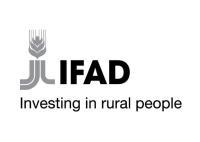The nutrition-sensitive fish agri-food systems approach was first introduced in Bangladesh, whereby innovative technologies for the production of carp and other micronutrient-rich small fish species were refined and integrated through community-based sustainable wetlands. The approach focused on aspects including the increased fish production and productivity, and consumption of micronutrient-rich small fish in the first 1,000 days of life.
Building on the success and growing interest from the project in Bangladesh, this current project was developed to scale up and implement similar approaches in other aquatic-agricultural systems in selected countries where fisheries resources have significant potential to improve food and nutrition security and livelihoods.
The overall objective of the project is to improve nutrition and livelihoods of poor, rural households in aquatic agricultural systems in Cambodia, Zambia, Indonesia and Thailand through increased intakes of micronutrient-rich small fish and vegetables from own production, as well as through increased household income.
